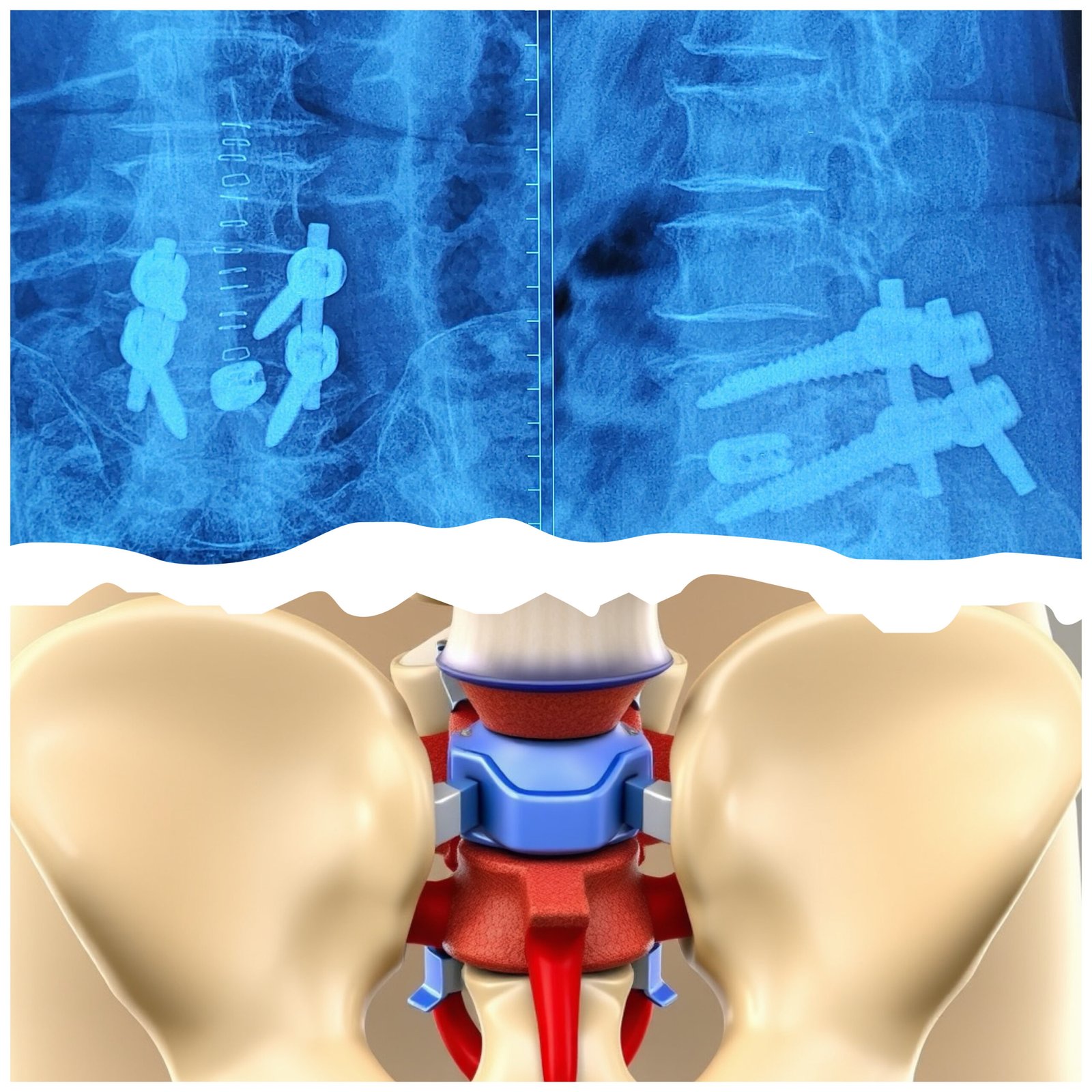Choosing a trusted spine surgeon is crucial for ensuring a safe and successful treatment outcome. Spine surgery is a delicate procedure that requires high precision and expertise, making it essential to select a qualified and experienced specialist. A well-trained spine surgeon can accurately diagnose spine conditions, recommend the best treatment options, and perform surgery with minimal risks and faster recovery.
However, unqualified or inexperienced surgeons can lead to surgical complications, prolonged recovery, or even failed procedures. Patients must evaluate a surgeon’s medical credentials, years of experience, hospital affiliations, and patient reviews before making a decision. Dr. Ganesh Veerabhadraiah, a leading spine surgeon in Bangalore, is renowned for his expertise in minimally invasive spine surgery and neurosurgical procedures, providing world-class spine care with high success rates.
Learn more about spine surgery procedures in our blog: What You Need to Know About Spine Surgery
Dr. Ganesh Veerabhadraiah – Expert Spine Surgeon in Bangalore
Dr. Ganesh Veerabhadraiah is a highly respected spine surgeon in Bangalore, known for his expertise in neurosurgery and minimally invasive spine procedures. With years of extensive surgical experience, he has successfully treated complex spine disorders, spinal deformities, herniated discs, spinal injuries, and neurological conditions. His specialization in minimally invasive spine surgery ensures that patients experience less pain, faster recovery, and improved mobility after surgery.
As a board-certified neurosurgeon, Dr. Ganesh is affiliated with top hospitals for spine surgery in Bangalore, offering high-standard medical care with advanced surgical techniques. His commitment to excellence is reflected in numerous patient success stories and testimonials, where individuals have regained their quality of life after undergoing his expert treatment. Whether it’s spinal fusion, disc replacement, or nerve decompression, his patient-centric approach ensures the best outcomes.
Know more about Dr. Ganesh Veerabhadraiah’s experience and specialties: Dr. Ganesh Veerabhadraiah – Neurosurgeon
Why Choosing the Right Spine Surgeon is Crucial?
Spine surgery is a highly specialized and delicate procedure that requires precision, expertise, and advanced surgical techniques. Choosing an inexperienced or unqualified spine surgeon can lead to complications such as failed surgeries, prolonged recovery, and chronic pain, significantly affecting a patient’s quality of life. A trusted spine specialist ensures the highest success rates and patient safety by using the latest minimally invasive techniques and personalized treatment plans.
Find out how spine surgery in India is improving patient outcomes: How Spine Surgery in India is Helping Patients with Chronic Back Pain
Key Factors to Trust a Spine Surgeon
✅ Board Certification & Credentials
- Why board certification is essential for a qualified spine surgeon.
- Check for medical licenses, affiliations, and specializations in spine surgery.
✅ Experience & Specialization
- Look for a spine surgeon with 10+ years of experience.
- Specialization in minimally invasive spine surgery, spinal fusion, and endoscopic procedures.
Explore different types of spine surgeries: A Guide to Different Types of Spine Surgery
✅ Hospital Affiliation & Reputation
- A trusted spine surgeon should be associated with top-rated hospitals.
- Advanced technology, infrastructure, and post-surgical care contribute to better outcomes.
✅ Patient Reviews & Testimonials
- How to evaluate online reviews for authenticity.
- Patient success stories and case studies for credibility.
✅ Advanced Spine Surgery Techniques Used
- Minimally invasive spine surgery (MISS) for faster recovery.
- Endoscopic & robotic-assisted spine surgery for precision.
- Spinal fusion, artificial disc replacement, and nerve decompression procedures.
Learn about the latest advancements in spine surgery: Advancements in Minimally Invasive Spine Surgery – What Patients Need to Know
✅ Transparency in Diagnosis & Treatment Plans
- A good spine surgeon explains all treatment options clearly.
- Warning signs of unnecessary surgeries & misdiagnosis.
- The importance of getting a second opinion.
Know the right questions to ask your spine surgeon: Questions to Ask When You Are Advised Spine Surgery
Red Flags – When Not to Trust a Spine Surgeon
❌ Lack of proper credentials or board certification.
❌ Recommends surgery as the first option without exploring non-surgical treatments.
❌ No track record of successful patient outcomes.
❌ Uses high-pressure sales tactics to convince patients to undergo surgery.
Find out how to avoid unnecessary spine surgeries: Avoid Spine Surgery – Natural Ways to Improve Spine Health
How a Brain and Spine Clinic Can Help?
A trusted brain and spine clinic provides a multidisciplinary approach, combining the expertise of spine surgeons, neurospecialists, physiotherapists, and pain management experts to deliver comprehensive spine care. Patients receive personalized treatment plans tailored to their specific conditions, ensuring the best surgical and non-surgical solutions. Additionally, these clinics offer rehabilitation and post-surgery care, helping patients recover faster and regain mobility effectively.
Discover how a brain and spine clinic improves patient care: How a Brain and Spine Clinic Can Help with Chronic Back Pain
Conclusion & Final Thoughts
Choosing a trustworthy spine surgeon is essential for ensuring successful treatment outcomes, faster recovery, and long-term spine health. A qualified specialist should have board certification, extensive experience, positive patient testimonials, and expertise in minimally invasive spine surgery. Patients must conduct thorough research, verify credentials, and seek second opinions if needed to make an informed decision.
Dr. Ganesh Veerabhadraiah, a leading spine surgeon in Bangalore, is recognized for his exceptional skills in neurosurgery and spine care, providing personalized treatment and advanced surgical solutions. His commitment to patient safety and cutting-edge techniques makes him a trusted choice for individuals seeking the best spine care. Consult Dr. Ganesh today to receive expert guidance and world-class spine treatment!
Looking for a trusted spine surgeon in Bangalore? Schedule a consultation with Dr. Ganesh Veerabhadraiah and receive expert spine care today!
FAQs – Common Questions About Trusting a Spine Surgeon
❓ How do I verify a spine surgeon’s credentials?
To verify a spine surgeon’s credentials, check if they are board-certified by recognized medical institutions and have specialized training in spine surgery or neurosurgery. You can also review their years of experience, hospital affiliations, patient testimonials, and success rates. Websites like the National Medical Council (NMC), hospital portals, and professional medical directories provide verified information on a surgeon’s qualifications.
❓ What questions should I ask my spine surgeon before surgery?
Before undergoing spine surgery, ask your surgeon:
- What is my exact diagnosis, and why is surgery needed?
- What are the risks and benefits of the procedure?
- Are there non-surgical alternatives available?
- How many similar surgeries have you performed, and what are the success rates?
- What is the recovery process, and will I need rehabilitation?
These questions ensure that you receive clear, transparent, and patient-centered treatment.
❓ Can I get a second opinion before deciding on spine surgery?
Yes, getting a second opinion is highly recommended, especially for major surgical decisions. A second opinion from another experienced spine surgeon or neurospecialist can provide alternative treatment options, confirm the necessity of surgery, or suggest a minimally invasive approach. Reputable surgeons encourage second opinions to ensure the best possible outcome for their patients.
❓ What are the risks of choosing an inexperienced spine surgeon?
An inexperienced or unqualified spine surgeon can lead to surgical complications, prolonged recovery, infections, nerve damage, or even failed spine surgery. Poorly performed procedures may require revision surgery, increasing costs and recovery time. It is crucial to choose a highly skilled, board-certified spine specialist with proven success rates to avoid these risks.
❓ How do I know if my spine surgeon is using the latest technology?
A top spine surgeon stays updated with the latest advancements in minimally invasive surgery, robotic-assisted spine surgery, and endoscopic spine procedures. Ask your surgeon if they use modern imaging techniques (MRI, CT scans), intraoperative navigation, and microsurgical tools to enhance precision. You can also check if the hospital is equipped with advanced surgical technology to ensure the highest standards of care.





